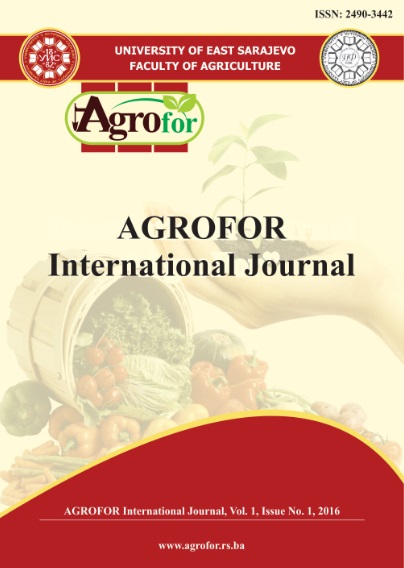AGRICULTURAL PRODUCTION IN THE CONTEXT OF INDUSTRIALIZATION AND FOOD SECURITY IN VIETNAM
DOI:
https://doi.org/10.7251/AGRENG1601086NAbstract
Since 1990s the bloom of industrialization and urbanization brings the changes of
social and economic issue of Vietnam rural areas. During this process, rural
households have reduced agricultural land for cultivating. From the status of food
producers now they become food consumers. Through surveying 215 households
in Bac Ninh province, the study shows that that industrialization and land
conversion process affected household food security in several aspects: the lost of
agricultural land and surplus agricultural production decrease; unguaranteed decent
work for peasants and high living cost; the decline of living quality and food
safety. Food consumption of the family has shifted from self-reliance to the way
that more depend on market which increases food expense propotion on household
budget. However, spending more on food does not mean satisfied since the
suspiciousness of food quality. Household food security becomes more vulnerable,
especially for households that have limited access to land and incapability of
finding stable jobs. One of the strategies of rural households is diversify their
livelihoods, accepted multi-spacial household model. And when income from nonfarm
jobs could relatively supply enough their need of cash, they would rather
consume high quality food than grow and sell high yielding variable. Rural
households move back to the local traditional agricultural activities to ensure their
own food quality.

